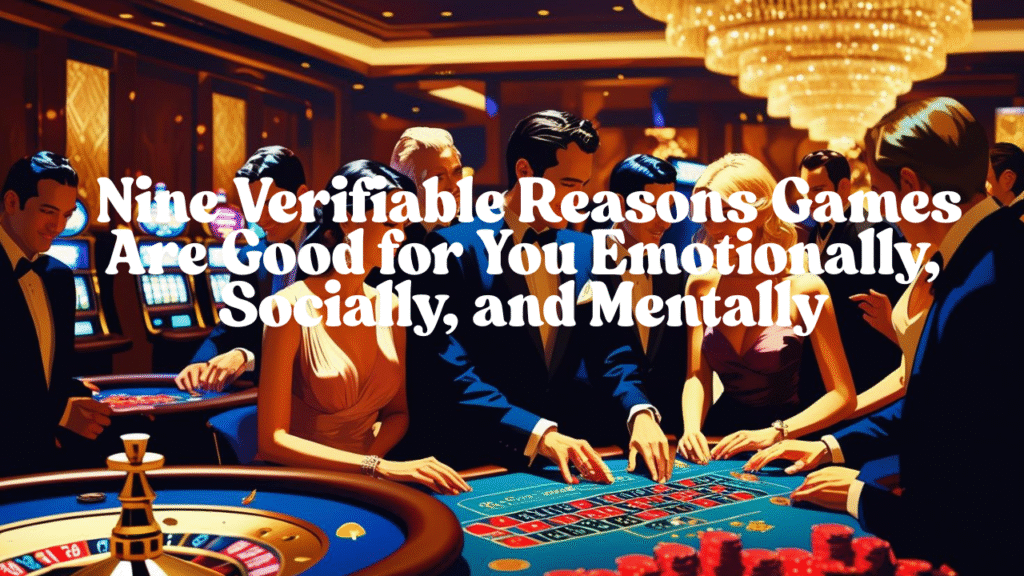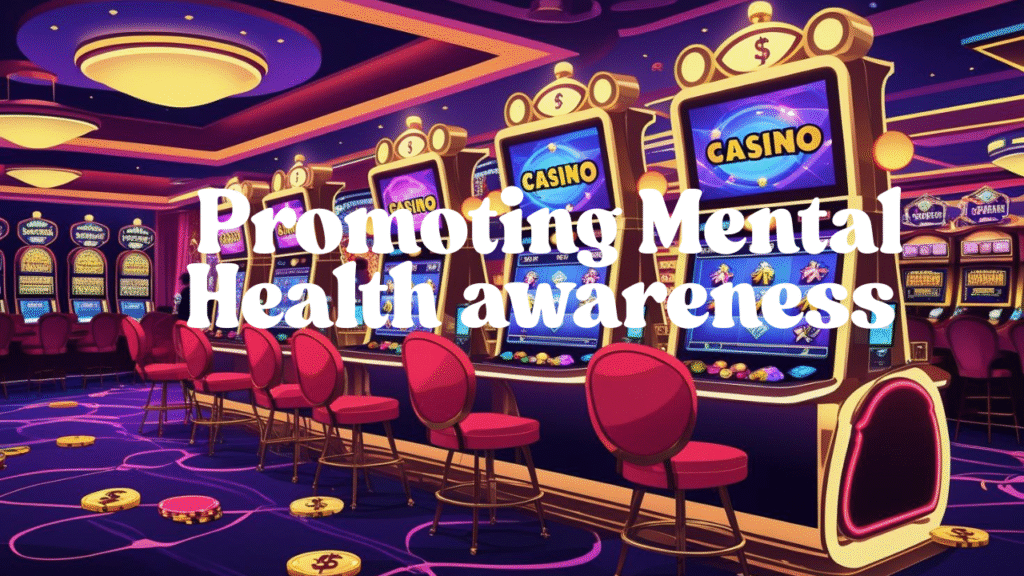Video games have often been misinterpreted for decades, attacked for encouraging violence or inactivity. Modern studies and behavioural science, however, present a far more balanced—and usually favorable—image. From cognitive development and stress reduction to social connection and emotional growth, games have shown to be considerably more than just leisure time pleasure.

We investigate why games good in this all-encompassing sense, not only as time-fillers but also as instruments that might enhance mental health, sharpen focus, inspire creativity, and deepen ties to communities. This is the study you have been waiting for if you need reliable arguments to justify your screen time or investigate the deeper value behind digital gaming.
From Pixels to Purpose: The Evolution of Gaming
Early on in gaming, basic mechanics and low graphics ruled. Games like Pac-Man and Tetris were challenging to learn but easy to play. Now fast forward, the scene has changed drastically. Now spanning genres, devices, and goals, cool games provide experiences as sophisticated as cinematic storytelling (The Last of Us), as soothing as life simulation (Stardew Valley), and as hard as eSports competition (League of Legions).
This development reveals a growing medium that transcends simple passing time. Rather, modern exclusively games are meticulously crafted experiences that challenge emotional intelligence, stimulate teamwork, and provide a means of self-expression, therefore engaging the brain.
Nine Reasons Games Are Actually Really Good
1. Improved mental clarity
Simulations, riddles, and strategy fun login gamesall assist boost memory, attention span, and spatial awareness. Action video game gamers, according to University of Rochester research, had faster reaction times and higher multitasking ability than non-players.
2. Emotional Regulating and Stress Release
Calm mechanics and ambient design in exclusively games like Animal Crossing and Journey are much sought after. In regulated, quiet surroundings, they let players decompress, manage emotions, and find brief escape.
3. Enhanced Problem-Solving Capacity
Whether it’s negotiating riddles in Portal 2 or controlling resources in Civilisation VI, many games are really sophisticated problem-solving exercises. These tests call for critical thinking, experimentation, and flexibility.
4. Improved Reflexes and Hand-Eye Coordination

Precision input timing and synchronisation are demanded by first-person shooters and rhythm-based amazing games , skills that have also been found to help with real-world tasks as driving or surgery.
5. Social Media and Community Development
Online multiplayer games include Minecraft, Among Us, and Fortnite provide shared areas where users cooperate, challenge one another, and create connections. For many, their main means of social contact are these virtual worlds.
6. Instruction and Learning Possibilities
Games are finding more and more application in instructional settings. Platforms like Kahoot! and titles like Kerbal Space Program or Assassin’s Creed: Origins have shown how creatively gaming may educate history, physics, even programming.
7. Promoting grit and persistent behaviour
Although it’s widespread in games, failure there is low stakes. Repeated attempts to meet a level or win a match teach resilience, delayed gratification, and the value of learning from mistakes—skills that apply nicely in daily life.
8. Promoting Mental Health awareness

Games inspired by narrative like Celeste, Gris, and Hellblade: Senua’s Sacrifice address trauma, anxiety, and sadness. They have been employed in therapeutic environments, raise awareness, and inspire empathy.
9. Increasing Originality and Self-expression
Sandbox games like Dreams or Minecraft inspire users to construct, create, and share. Through architecture, narrative, or modification, these games give means of creative expression.
Methodically: How to Select Games Fit for You
First, specify your objective.
Are your objectives in leisure, intellectual stimulation, acquiring a new skill, or socialising? Clearly indicate your intended direction of choice.
Second: Select a suitable genre.
Games with strategies and puzzles fit cognitive stimulation.Adventure and narrative titles let one emotionally participate. Simulations help management and innovation.
Third step: thoroughly review materials.
Look for evaluations covering gameplay, tone, and mechanics—not only graphics or buzz. Search for terms including “immersive,” “thought-provoking,” or “community-driven.”
Set reasonable limits in step four.
Even the greatest games call for harmony. Manage your playtime and prevent any misuse with timers or in-game tools.
Step 5: Think about influence.
Think back on how the game made you feel after play. Did it teach you, challenge, inspire, or relax you? Refine next decisions using this input.
Separating Myth from Reality: Analysis
Games still generate misunderstandings even with their many advantages. Common misconceptions are broken out here against actual data:
Myth: Games advance violence.
Reality: Most gamers can readily separate imagination from reality; direct causality between games and violent behaviour has not been found by science.
Myth: Games cause time to be wasted.
Reality: Time engaged in meaningful or instructional games can produce emotional and cognitive returns. Even leisurely games have a function since they help to reduce tension.
Myth: Games are isolating.
Reality: Many participate socially in multiplayer environments, Discord communities, or competitive teams. Games offer some people essential social contact.
Frequently Asked Questions (FAQs) on games good
Q1: Are all games useful or only particular ones?
A: Not every game gives the same advantages. For best value, search for works with strategic depth, emotive tales, or inventive mechanics.
Q2: How daily gaming time should I allot?
A: Moderation is essential. Most individuals can find enrichment in 1–2 hours of deliberate, goal-oriented gaming without sacrificing their daily obligations.
Q3: Might kids also gain from games?
A: Age-appropriate games can indeed help with social skills, coordination, and reading. Safe and sensible use depends on parental engagement.
Q4: Comparatively to console or PC games are mobile games as good?
Particularly in categories like puzzles, strategy, and simulations, many mobile games provide premium experiences. The design of the game determines more than the platform does.
Q5: Can games actually improve mental health?
A lot of research and anecdotal data point to games as a means of treatment, stress release, and even diversion from anxiety. Games can enhance mental wellness practices even though they cannot replace expert treatment.
In essence, the good in games is real and quantifiable.
No longer a particular kind of entertainment, video games are dynamic multidimensional experiences that challenge, teach, and link people all over. When selected sensibly and performed deliberately, games are not only “good”—they are transforming.

So point them here the next time someone queries your gaming behaviour. The science, psychology, and societal advantages all point clearly: good games accomplish good things. And the more we welcome their potential, the more worth they can provide into our life.





